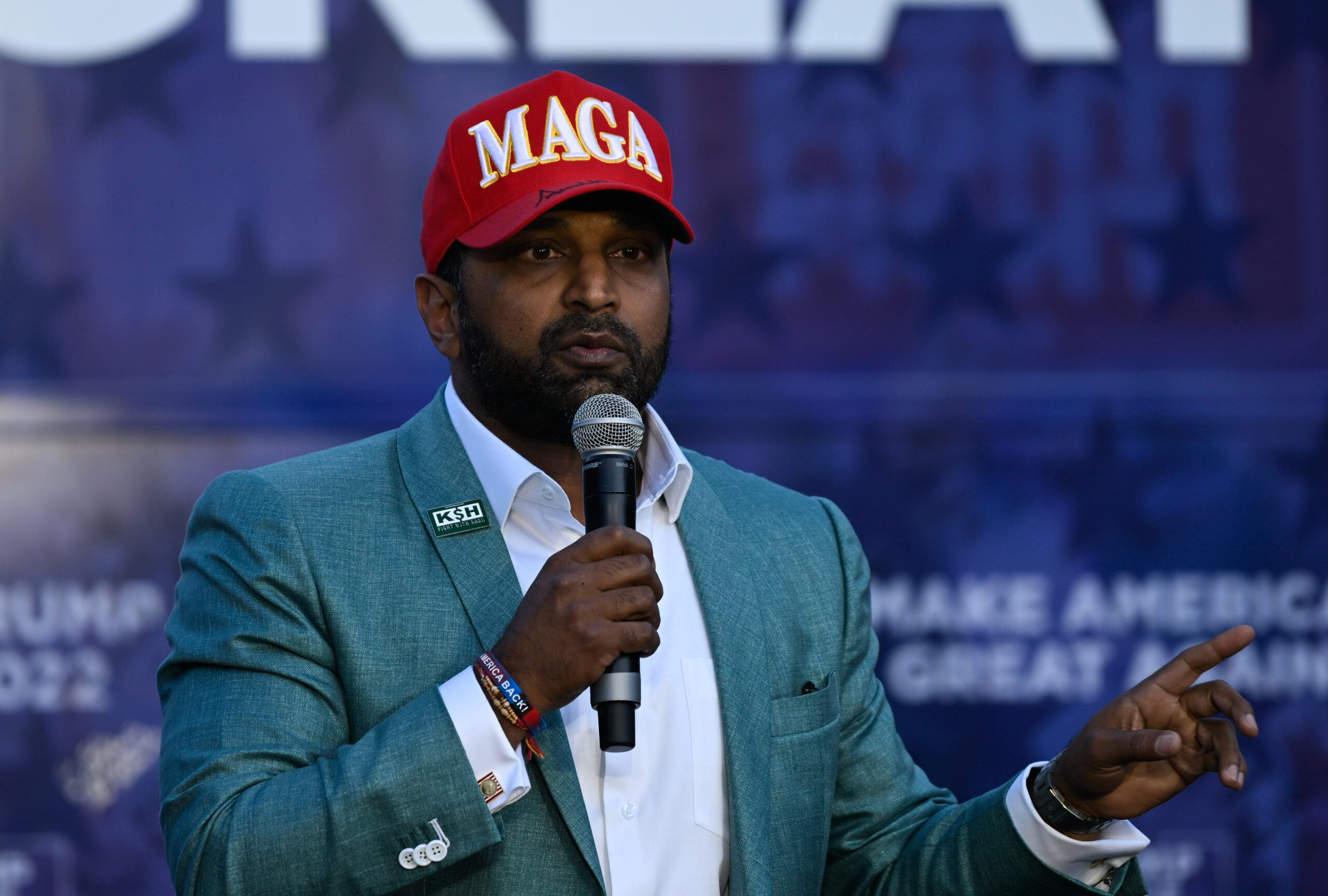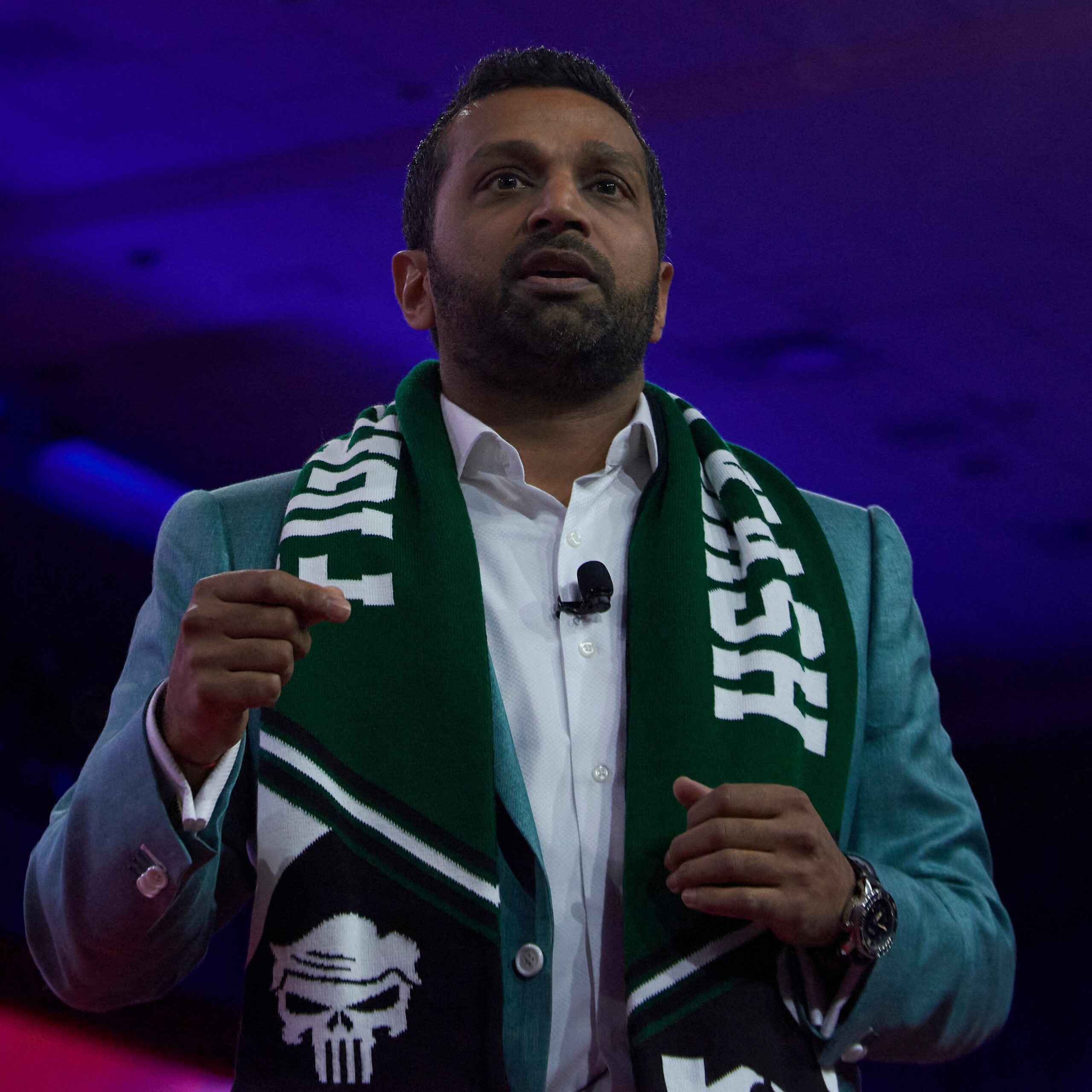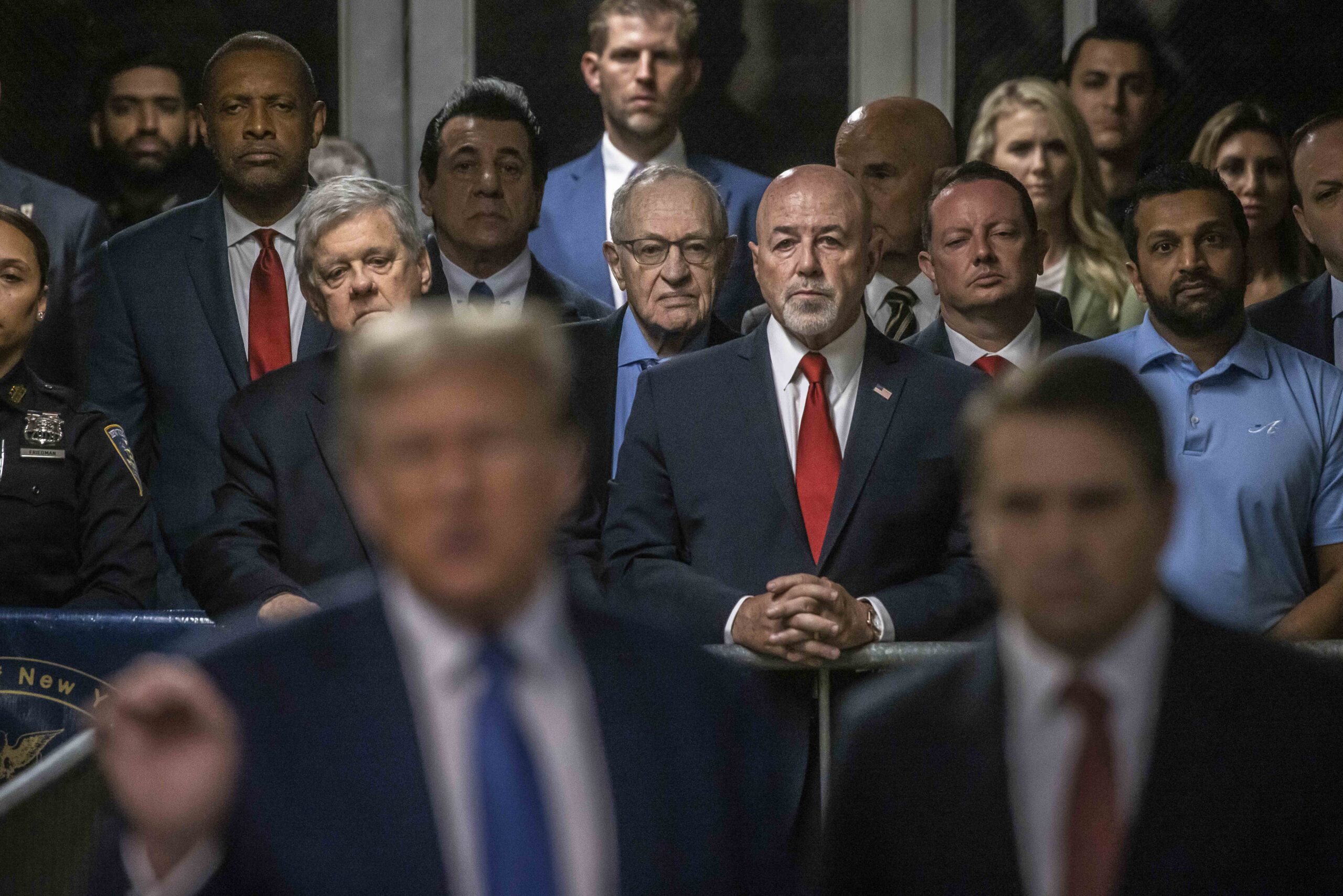The saga of Trump and Russia: Does it ring a bell? Kash Patel certainly recalls it. This narrative serves as the bedrock of his significance, a significance he elaborates in his September 2023 publication, Government Gangsters.
In this book, he presents a twisted new narrative regarding the “Russiagate” affair—a saga that dominated the initial years of Trump’s presidency and propelled Patel from a largely unnoticed federal attorney to Trump’s chosen candidate for FBI director.
What did the Russia investigation entail? In one recounting, there were eight individuals who either pled guilty or faced felony convictions during the years 2017 to 2019 as a result of the Mueller inquiry, a group of lawyers operating under the guidance of Special Counsel Robert Mueller, a former FBI director. Among them were five associates from Trump’s orbit, including his past campaign manager Paul Manafort and national security adviser Michael Flynn, who served for a brief period.
You won’t find this straightforward and factual overview in Gangsters (Manafort isn’t mentioned at all). Instead, you’re presented with a fantastical narrative where Robert Mueller isn’t the paragon of virtue that “the establishment” painted him to be, but rather “an utter swamp creature” orchestrating a “taxpayer-funded hit job.”
In Patel’s perspective, Mueller is merely one of many compromised individuals within the so-called “Deep State,” who have purportedly aimed to undo Trump ever since his victory in the 2016 Republican primaries.
According to Gangsters, there exists only one true figure of integrity in the murky waters of Washington, D.C.: the protagonist of the book, Kash Patel, or “K$H,” as his self-promotional branding suggests. (You can even snag a “Fight with K$H” T-shirt for $35.)
The only other notable character with any honor is Patel’s mentor—the individual who left him “starstruck” during their initial collaboration in the Oval Office, the one he believes is above reproach—Donald Trump himself.

Patel recounts an extraordinary journey in Gangsters: his own. Born to Indian immigrants who escaped Idi Amin’s oppressive regime in Uganda, he is a product of Garden City High School in Long Island, the University of Richmond, and Pace Law School, which is ranked 136th among the 196 U.S. law schools by U.S. News & World Report.
After earning his J.D., he struggled to land the prestigious law firm job he anticipated. Burdened with student debt, he ended up working as a public defender in Miami-Dade, surrounded by lawyers he describes as “far left of the left wing”—a somewhat unfulfilling period he scarcely details in the book. (“Yes, some of my colleagues were a bit unhinged. But for me, justice always mattered.”)
His trajectory sees him become a trial lawyer in the Department of Justice under Barack Obama in 2014, before he transitions into a vital aide to Republican Devin Nunes, then-chairman of the House Intelligence Committee, in 2017, coinciding with Trump’s inauguration. That’s where his swift rise alongside the previous and future president commences.
Gangsters proves to be an unexpectedly salacious read: Patel frequently names names and seems eager to expose the villains as he perceives them. He characterizes “shifty Adam Schiff,” the Democratic counterpart to Nunes on the House Intelligence Committee, as being “from the inner circle of Dante’s Inferno… the epitome of a corrupt politician. There’s no depth to which he wouldn’t sink to promote himself and undermine his adversaries while jeopardizing the nation he claims to serve.”
This is precisely the sort of book that Elon Musk is likely to retweet out-of-context excerpts from if alerted, given its abundance of what might be classified as credible specifics: Patel hurls detailed allegations by the score. Here are five that shine brightly.
“The challenges we are facing are not merely the result of incompetence among our leaders but, more fundamentally, their malicious intent,” Patel asserts, attributing wrongdoing to deliberate actions. “The media isn’t just biased; they’re purveyors of falsehoods… the Deep State isn’t a wild conspiracy theory but a tangible force—and it represents the gravest danger to our democracy.”
The core argument of Patel’s work is that “corrupt” individuals—60 of whom he identifies by name in an appendix—form part of a prevailing conspiracy that signals the “end of self-government in America.”
“The appalling and horrific specifics of what the Deep State has already enacted to enhance its authority populate this book,” Patel announces at the beginning, hinting at revelations that ultimately fail to materialize.

He describes five categories of malicious actors: “elected officials,” “yellow journalists,” “Big Tech moguls and players” (keep in mind that Elon had yet to endorse Trump in September 2023), and, most importantly: “officials… spiteful mandarins… the unelected federal bureaucracy.”
He seeks to anchor his sensational narrative within a historical context, referencing Eisenhower’s renowned caution against the military-industrial complex, which Patel contends has metamorphosed into today’s Deep State.
“Every individual accused of a crime retains the presumption of innocence until proven guilty beyond a reasonable doubt, and the evidence establishing that guilt must be presented transparently and justly in a court of law,” Patel articulates, establishing a benchmark he doesn’t uphold in his writing.
The 60 members of the executive branch labeled as part of the Deep State include Joe Biden; Bob Mueller; former FBI director James Comey; the current FBI director Christopher Wray, whom Trump wishes Patel to succeed; and former Chairman of the Joint Chiefs of Staff Mark Milley.
Other unnamed individuals include past intelligence community Inspector General Michael Atkinson, who goes unmentioned until he surfaces in the appendix as a Deep State operative. Patel offers no explanation for this omission. Only Atkinson can reveal whether he once perceived Patel with disdain.
The central narrative Patel shares in Gangsters highlights his involvement in Nunes’ committee, unearthing what he dubs “the most significant political scandal in American history”: the Deep State’s endeavor to portray Trump as an agent of Vladimir Putin.
He spins a gripping tale replete with narrative details (“after Devin [Nunes] and Speaker Ryan shared a few drinks on the Speaker’s Balcony at the Capitol Building, Ryan finally consented”) all to bolster his primary assertion that the Russia investigation was politically motivated and orchestrated by compromised agents within the FBI.
Patel zeroes in on the Steele Dossier—a collection of lurid and unsubstantiated claims about Trump put together by the former head of MI6’s Russia Desk—and its undisclosed motive, namely that the Hillary Clinton campaign and the Democratic National Committee financed it (through the firm Fusion GPS).
This reality, which remained hidden when BuzzFeed made the unconventional choice to publish the dossier in January 2017, is viewed by Patel as a damning piece of evidence that his relentless investigative fervor, akin to that of Woodward and Bernstein, compelled the Deep State to expose.
As a principal author of the notorious Nunes Memo regarding the Russia investigation released in February 2018, Patel highlights FBI shortcomings—such as the Bureau’s excessive reliance on the Steele dossier to secure surveillance warrants on a member of the Trump campaign—that were too quickly dismissed by Democrats then, and later validated by Inspector General Michael Horowitz, whose integrity is acknowledged broadly and whom Patel notably refrains from criticizing.
Nevertheless, Patel’s claims of a vast governmental conspiracy do not stem from his verifiable facts.
Patel seizes upon minor incidents to make sweeping assertions. Horowitz, the inspector general, reported 17 inaccuracies and omissions by FBI agents in their surveillance requests, as well as a lack of specificity regarding the partisan origins of the Steele dossier. Patel transforms these mistakes into a strategic playbook of the Deep State:
“Initially, the FBI or their political allies create ‘news’ pieces based on falsehoods and unverifiable gossip, in this instance by alleging that Page was attempting to broker a deal with Rosneft. The FBI then leverages their own fabricated story to justify investigations against the political adversary.”
“Next, the FBI leaks information about their investigation of the political opponent to the media, leading to reports that tarnish the individual as the target of a federal inquiry sourced from anonymous informants. Such narratives would later be cited by the FBI to validate their ‘incredible’ source reporting and permit their unlawful investigation and surveillance.”
Yes, the FBI made mistakes. However, as Lawfare noted in 2021 (after Trump awarded Nunes the Presidential Medal of Freedom), the Steele dossier “played an exceedingly minor role in the Mueller report. Moreover, Steele had no involvement in the inquiries concerning [Trump campaign surrogate] George Papadopoulos or Michael Flynn, and was minimally related to the criminal investigations of the Paul Manafort case.”
“His [Steele’s] information had zero impact on the analysis of the Internet Research Agency or its manipulations on social media. Nunes [following Patel’s lead] was astute enough to exploit a murky segment where the FBI’s blunders were significant, and morph that into a [false] portrayal of the entire Crossfire Hurricane investigation.”
As the narrative unfolds, Patel positions it as a lengthy appeal for a role in a potential forthcoming term for Trump. He explores various avenues for potential future employment, elucidating his plans for reform in the FBI, the Department of Justice, the Department of Defense, and the intelligence community. The implication is clear: “K$H” is poised to assist a re-elected President Trump with any necessary reforms.
The reforms he proposes for the FBI are, partly as a result, concise, despite him depicting the agency as the “prime instrument” of his alleged Deep State. He dedicates a mere few pages to his remedies for the Bureau, suggesting that its General Counsel office should be curtailed, that the process of obtaining surveillance warrants via FISA courts requires overhaul, and that those who misuse their power must be held accountable.
Yet, a realization begins to set in as Patel unleashes his criticisms of the FBI: he lacks substantial knowledge about it. His experience has been one of distance as Nunes’s aide, viewing the institution through a lens of deceit of his choosing.
His most ambitious reform proposal, which has since been amplified in various podcast appearances, is to shut down the FBI’s headquarters in Washington and convert it into a Museum of the Deep State.
This is an archetypically Trumpian notion, equally audacious as the idea of constructing a wall financed by Mexico, from someone who grasped that the route to success required offering Trump the loyalty he has consistently sought from an FBI director.

Patel continued to occupy a series of positions during Trump’s term, leading the Counterterrorism Security Group on the National Security Council, serving as deputy to the acting head of the Director of National Intelligence, and briefly holding the chief of staff role at the Department of Defense.
He earned the title of Trump’s “intel guy,” as the president described him during a state visit to Gujarat, his ancestral home in India, where Trump proudly presented Patel to Prime Minister Modi.
Trump appeared eager for Patel to take on every accessible second-tier national security role at some point during his first term. However, this ambition was stymied by his advisors, who blocked his appointment as deputy director of the FBI at the hands of Attorney General Bill Barr, and as deputy director of the CIA by its then-leader, Gina Haspel.
Now K$H stands elevated to the upper echelons, bypassing the internal resistance that had previously hindered him. Yet, opposition to his newly proposed authority may soon emerge from a fresh source: Senate Republicans.


